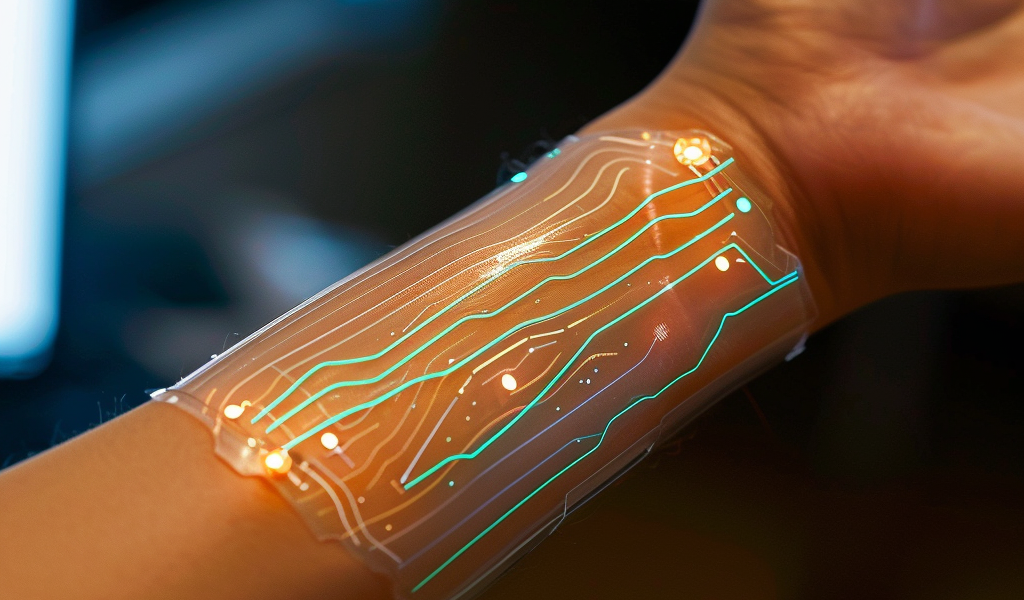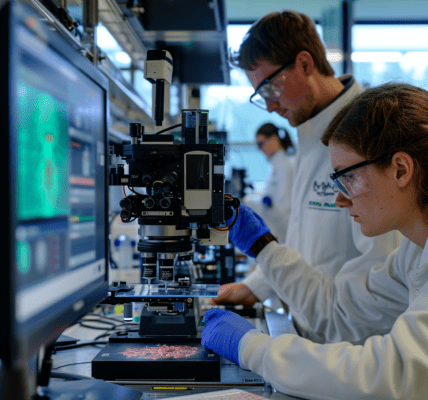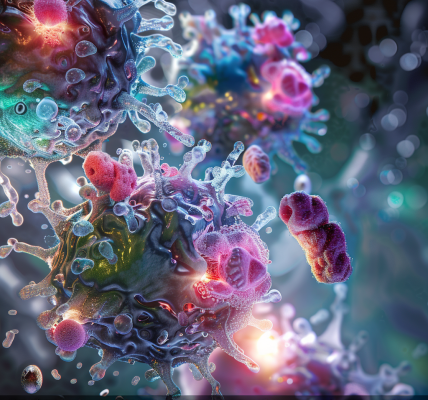In a recent breakthrough, a new sensor design has been introduced that allows for the in-situ detection of solid-state biomarkers present on human skin. This innovative technology utilizes an ionic-electronic bilayer hydrogel to enable the sequential dissolution, diffusion, and electrochemical reaction of solid-state analytes. The sensor has demonstrated the ability to continuously monitor both water-soluble analytes, such as solid lactate, and water-insoluble analytes, like solid cholesterol, with remarkably low detection limits.
One of the key advantages of this sensor is its ability to reduce motion artifacts significantly compared to traditional liquid-sensing electrochemical interfaces. This improvement by a factor of three enhances the accuracy and reliability of the collected data. Moreover, in a clinical study, the stretchable wearable sensors equipped with this technology exhibited a strong correlation with biomarkers found in human blood, showcasing their potential for real-time health monitoring.
This development opens up exciting possibilities for universal platforms for biomarker monitoring that eliminate the need for traditional biofluid acquisition methods. By enabling the detection of solid-state epidermal biomarkers without the reliance on biofluids, this technology could revolutionize the field of health monitoring and provide valuable insights into physiological activities.





